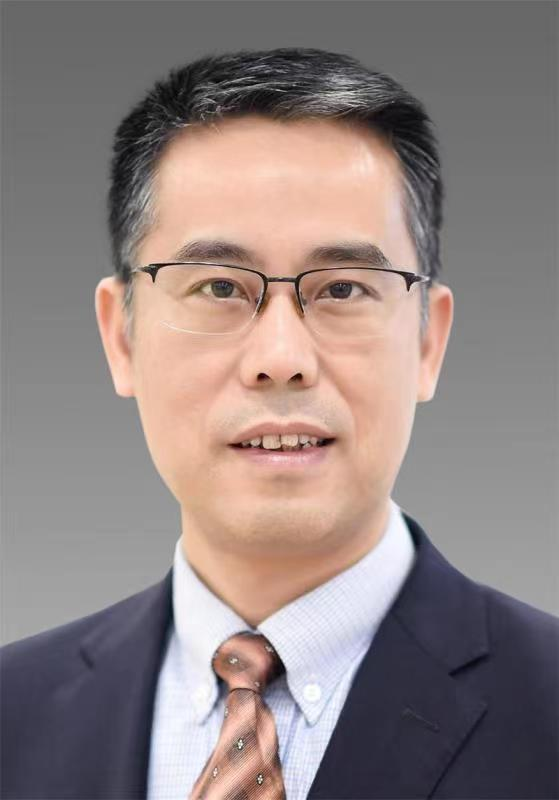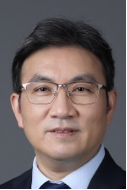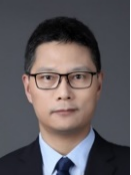Xiaogang Guo
Director, Department of Cardiology, FAHA
Dr. Guo specialized in intervention therapy for complex coronary diseases, valvular heart diseases, and hypertrophic cardiomyopathy

This one-year fellowship program is designed to provide advanced training in structural heart interventions, such as transcatheter aortic valve replacement (TAVR), mitral valve interventions (transcatheter edge-to-edge repair and transcatheter mitral valve replacement), tricuspid valve interventions, ASD/PFO/VSD/PDA closure, and left atrial appendage occlusion, among other procedures. This program includes intensive experience in the cardiac catheterization laboratory/hybrid operating room, technical planning for the procedures (detailed CT/echo assessment), and exposure to inpatient and outpatient care.
1. Innovative Procedures: Gain expertise in state-of-the-art transcatheter techniques, including TAVR, Mitral TEER, Tricuspid TEER, Transcatheter tricuspid annuloplasty, ASD/PFO/VSD/PDA closures, and LAA occlusion.
2. Expert Mentorship: Train under nationally and internationally recognized faculty with extensive experience in structural interventions.
3. Multidisciplinary Approach: Collaborate with imaging specialists, surgeons, and clinical cardiologists in multidisciplinary teams.
4. Advanced Imaging Exposure: Learn intracardiac echocardiography (ICE), transesophageal echocardiography (TEE), and cardiac CT/MRI applications in structural interventions.
5. Research Opportunities: Engage in ongoing clinical trials and translational research projects to advance the field of structural heart interventions.
1. Master clinical and procedural skills in diagnosing and treating structural heart diseases.
2. Develop proficiency in using advanced imaging tools to support interventional procedures.
3. Cultivate expertise in a multidisciplinary approach to managing complex cardiac cases.
4. Achieve readiness for independent practice in structural cardiology and leadership roles in the field.
5. Build a strong foundation for clinical and translational research in structural interventions.
This one-year fellowship provides an intensive full-time training experience. Additional flexibility for shorter durations ranging from 2 weeks to 6 months can be arranged to accommodate individual needs and interests.
• Fellows: Must have completed a cardiology fellowship program at an accredited institution and demonstrate interest in interventional cardiology.
• Residents: Must have completed at least three years of internal medicine residency training and show a strong focus on pursuing a cardiology subspecialty.
• Students: Must be final-year medical students with completed core clerkships and a letter of good standing from their medical school, highlighting academic and clinical achievements.
• Transcatheter Aortic Valve Replacement (TAVR)
• Transcatheter mitral valve repair (e.g. M-TEER)
• Transcatheter valve repair (e.g. T-TEER, annuloplasty)
• Left atrial appendage occlusion (LAAO)
• ASD, PFO, VSD and PDA closure procedures
• Multidisciplinary management of structural heart disease
Monday
1st Week: Introduction & Welcome, Program overview and objectives
Weekly: MDT conferences, Complicated case study
Tuesday
Weekly: Outpatient observation, Academic lecture, Basic surgical skills training
Biweekly: Mentor one-on-one training
Wednesday
Weekly: Clinical rounds, Interventional Procedure Observation
Biweekly: Simulated procedure training
Thursday
Weekly: Complicated case study, Case-based discussion
Biweekly: Hands-on interventional training
Friday
Weekly: Journal club, Clinical rounds, Clinical skills training, Special task training
Last Week: Wrap-Up & Reflection, Participant presentations or discussion of key takeaways, Feedback session (e.g. online survey or live Q&A)
After each rotation, each faculty member evaluates each fellow according to core competencies of patient care, medical knowledge, practice-based learning and improvement, interpersonal and communication skills, professionalism, and system-based practice. Faculty members meet with fellows individually for verbal feedback and evaluation. Monthly, an aggregate evaluation of a fellow’s clinical progress is conducted through a clinical competency faculty committee.
Upon finishing, participants will receive a certificate of completion upon meeting program requirements.

Director, Department of Cardiology, FAHA
Dr. Guo specialized in intervention therapy for complex coronary diseases, valvular heart diseases, and hypertrophic cardiomyopathy

Deputy Director, Department of Cardiology, FAHA
Dr. Zhang specialized in coronary interventions and congenital heart disease occlusion.

Deputy Director, Department of Cardiology, FAHA
Dr. Wang specialized in cardiac pacing and interventional therapies in congenital heart diseases, as well as Left Atrial Appendage Occlusion (LAAO).
The program is free of charge.